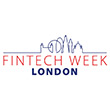Insurance industry identity crisis and modernisation
The Edward Lloyd coffee house that founded the London insurance market was built on a paper-based system tailor made and perfect for the time. It was all they had, and it worked beautifully.
However, that was then, this is now, and the London insurance market still operates on paper today. Paper slips are still carried around by brokers, left in toilets, dropped in bars and blown away by the wind on the underground. The days of the coffee shop are long gone yet the market clings on to this cultural identifier lovingly, reluctantly and stubbornly. It does this despite a growing loss in the re-insurance market share to emerging markets. There have been many initiatives implemented for change yet without much success. So why is this?
As a company outside of the market researching the industry we have witnessed a malaise toward phrases and subjects that represent change. We have heard concerns when conversations move toward digital transformation, modernisation, blockchain and artificial intelligence (AI).
Insurance is a wonderfully crafted industry based on relationships and trusted expertise. The fear of modernisation comes mainly from those who have been in the industry for many years and have trusted allies.
Yet, despite this there is a real and growing hunger for change from within – at times it can be positively overwhelming which is a marvellous thing to experience. This is without doubt a movement and it will certainly be the beginning of a cultural revolution in the industry.
Some organisations provide a platform for like-minded practitioners to come together and share experiences and thought leadership for a transformed market. Brokers, insurers and re-insurers discuss change, transformation and modernisation collectively. These feed passion and drive for change but more importantly this is a collaborative and cross market approach that will define a new narrative for a new identity.
It could be argued the London insurance market has an identity crisis and we see it when looking from the outside in. Our research for a global technology services provider in the insurance market led us to discover a significant lack of focus on people and talent in cross market external communication on change. The talk of digital transformation rarely talks about human benefits, how everyday lives will be affected for the better. People make up the industry, people are the customers and there are some truly inspiring people both pushing for change and not. Add to that the wonderfully rich cultural heritage and history of the London market and you have a recipe for a fabulous narrative, something that’s missing in London.
We found that corporate communication can at times be fairly accused of being written by AI. If you take two random company’s mission statements and take away the brand it can at times be hard to tell them apart. Communication is often impersonal and tired. A strong new narrative will explain the relevance to the international market again. It’s what will bind all practitioners and experts alike and it’s what will bind all of our video communications content together across a year-long campaign, whether from the virtual studio or animated content.
Modernisation isn’t just a necessity, it’s an inevitable cultural change and the pivot point is now – people are hungry for it. For new modernisation initiatives to succeed the narrative and message must be collaborative and shared. All brokers, insurers and experts have an obligation to work together to give power to the message.
Just as a nation has an identity, so can an industry. We can see this when looking at the Asian insurance market. It’s become synonymous with speed of transactions and famed for being built on technology in a digital age – not paper. The aviation industry has a narrative of constant assessment for safety. It records every tiny thing and shares information across the industry for the good of our safety when flying. Imagine if the insurance industry took the same approach?
If the market combines collectively as a movement to promote itself as an industry built on talent, expertise, a thirst for constant improvement, that path toward transformation will come as a consequence rather than a forced necessity. The narrative must be clear, bold and collaboratively communicated. This is a market made up of people with different political allegiances, motivations, backgrounds and ages so we need one message with many voices. A message can appeal to many people in many different ways.
If the narrative is strong and consistent enough it can be a powerful thing. It can effect change. It can bring about a cultural and digital revolution.
By Stuart Campbell, MD, Bareska












































